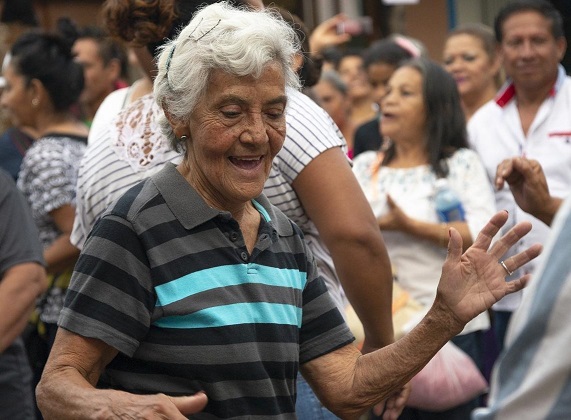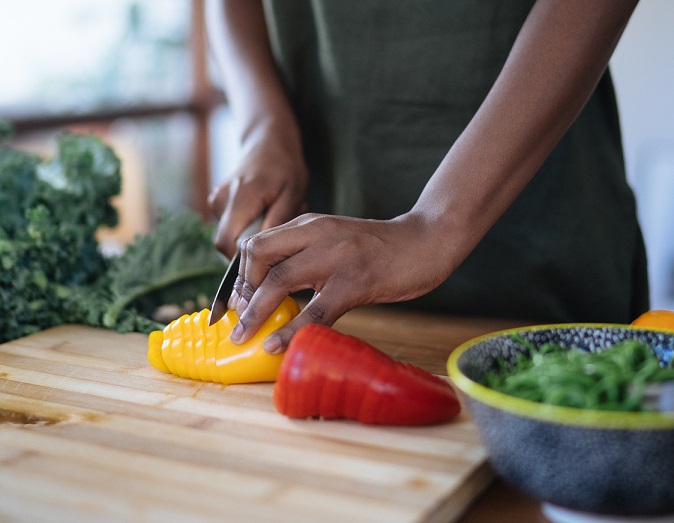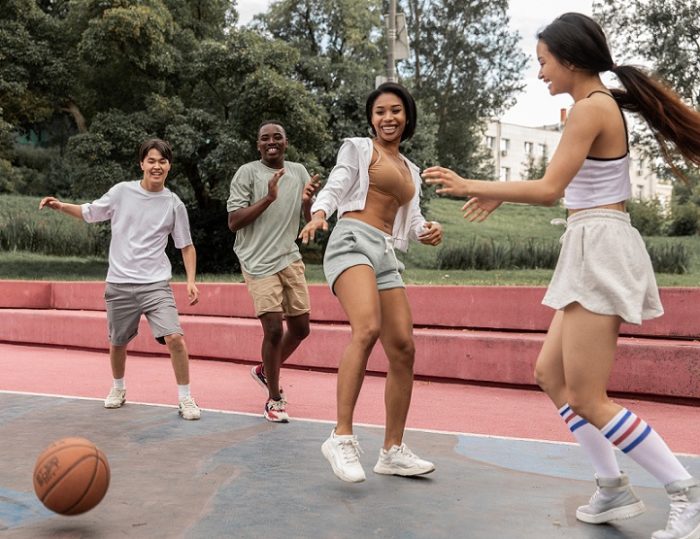Community and support systems play an important role in supporting healthy lifestyle choices

Physical activity in all its forms - whether indoors or outdoors, vigorous or mild, alone or with a group - and eating a healthy diet go a long way to improve our overall physical and mental health and wellbeing.
Many diseases including non-communicable diseases, mental illnesses and infectious diseases could be prevented or better managed by regular physical activity and healthy eating. Yet in the UK, many people still continue to eat too much saturated fats and sugary foods and not enough fruits and vegetables. Also, about 4 in 10 people and even more people from ethnic minority backgrounds (6 in 10), are not meeting the government guidelines for physical activity.

The reasons are complex but people from Asian, Black and ethnic minority backgrounds face multiple inequalities in social, health, environmental and geographical contexts. Through our conversations with members of the public from ethnic minority backgrounds, we have observed that inequalities in accessing the right knowledge, types of food or even green spaces to engage in physical activity still exist.
Despite these inequalities, some people still managed to be physically active or eat healthily during the pandemic, mainly because they belonged to a diverse community or social support group. Carrying out activities as a group whether with family, friends, neighbours, or members of a club, shifts the focus from the actual activity being carried out to valued time for bonding or socialising. After a long busy day and juggling responsibilities, engaging in some form of activity or movement may sometimes appear to be an extra source of stress or another activity to add to an already over-loaded day. During such times, taking time with friends to engage in fun activities was preferred.
For example, many older adults complained that physical activity could be very stressful and tiring but they enjoyed dancing with friends at a community club, almost as though they did not consider that this was physical activity or exercise. Young people who belonged to clubs considered their physical activity time enjoyable, first as a time to meet friends and have fun before thinking about all the health benefits they could also get out of being active.
even if you do try to single yourself out from everyone they’ll always try and bring you in even more because, when you’re in there it’s like you’re part of this new family and we all want to see everyone in that family improve so we push each other to be the best… You enjoy it… it helps you mentally and physically, you get healthy and it is almost like a secondary benefit. it’s just amazing
– 18-year-old male

Belonging to a community/social group was also useful to build the motivation for activity even while away from the group. This suggests that the role belonging to a community group plays in physical activity behaviour continues even after the time spent in the group. For example, during the lock down, some young people who could no longer attend their physical activity groups and clubs, carried on being physically active because they had already gotten into the habit of being active and knew how to encourage themselves to be active.
Going forward, it is important for the government, researchers and organisations working to improve physical activity and healthy eating, to work closely with these community groups and clubs to promote and support a healthy lifestyle.
To our current readers, why not grab a friend or two while setting your physical activity goals or look out for existing clubs or groups in your community.
Blog post by Sandra Agyapong-Badu and Olatundun Gafari
